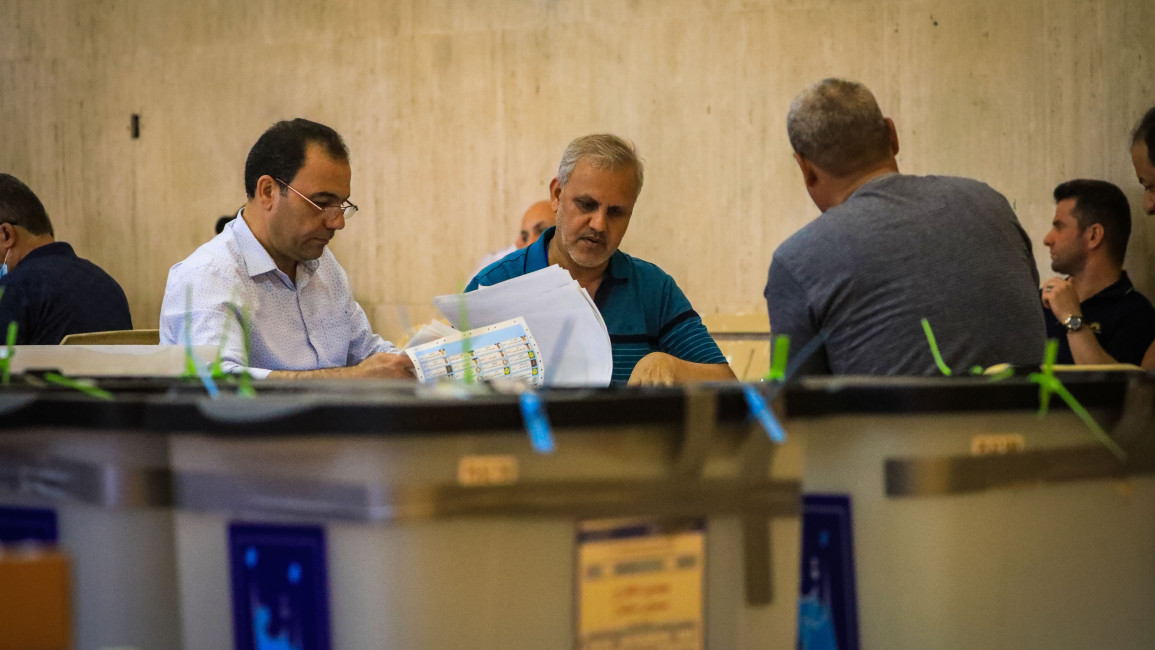Scorching summer heat in Iraq sparks fears of low voter turnout for provincial elections
As Iraq's Independent High Electoral Commission (IHEC) has announced procedures for renewing voter registration and registering candidate lists for the upcoming provincial elections, Iraqi political parties are concerned that voters might end up boycotting the vote scheduled for 18 December.
The commission on Monday called on the Iraqi voters in 15 provinces, excluding the northern Kurdish region, to update their biometrics from 9 July until 7 August to be eligible to participate in the elections.
On Monday, Jumana Ghali, spokesperson for IHEC, told Iraq's State News Agency (INA) that three million voters should update their voting identities to include biometric verifications to prevent voter fraud.
Twenty-five million persons, out of a population of 45 million, can vote in the elections, which could see low turnout as most Iraqis feel hopeless that elections change anything.
حسابات المفوضية على التواصل الاجتماعي https://t.co/gnwioFS07o #المفوضية_العليا_المستقلة_للانتخابات pic.twitter.com/it8amV7g0q
— المفوضية العليا المستقلة للانتخابات (@IHECOfficial) July 9, 2023
The last provincial elections held in Iraq was on 20 April 2013, in which Nouri al-Maliki, Iraq's former prime minister, won the majority vote. In the Iraqi Kurdistan region, elections have not been held since 2014.
On 28 October 2019, the Iraqi parliament voted to dissolve the provincial councils, a vital demand of the 2019 anti-corruption protests.
An Iraqi lawmaker from Haider Abadi's al-Nasr coalition has expected that voter turnout in the elections "will not exceed 50 per cent."
The Lawmaker, speaking to The New Arab's Arabic sister-language website, Al-Arabi Al-Jadeed, also said that the renewal of existing voting registration or new voter registration by the youth "is very weak". The MP, who wished not to be named, indicated that many Iraqis are sceptical about participating in the elections as they see conditions in the country are deteriorating, especially the government's failure to provide essential public services.
Moreover, this week, hundreds of demonstrators took to the streets in Basra, Iraq's southern province, to protest against long hours of electricity cut-offs during sizzling summer temperatures.
Record low turnout in the elections might also happen if prominent Shia cleric Moqtada al-Sadr continues boycotting the country's political process.
On the other hand, the IHEC has announced they would initiate registering candidate lists for the provincial elections from 15 July until 13 August.
Twenty-five new political parties, four coalitions, and the traditional ruling parties will compete to win the most seats in the provincial councils, mainly tasked with providing public services to the locals.
For the first time since 2005, the elections will also be held in Kirkuk's multi-ethnic and oil-rich province, in a constitutionally disputed area between the Kurdistan region and the federal government in Baghdad.
Fierce contests are expected among Kirkuk's three main communities of Arabs, Kurds and Turkmen. The Kurds might lose a majority in the province since the Kurdish political parties are not expected to run the contest with a unified list.



